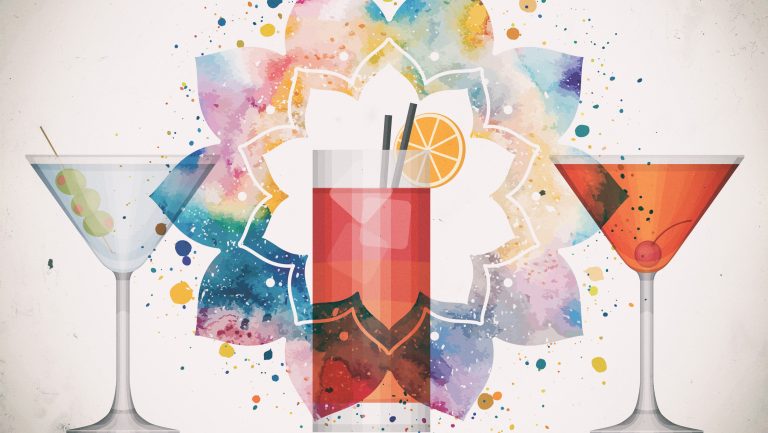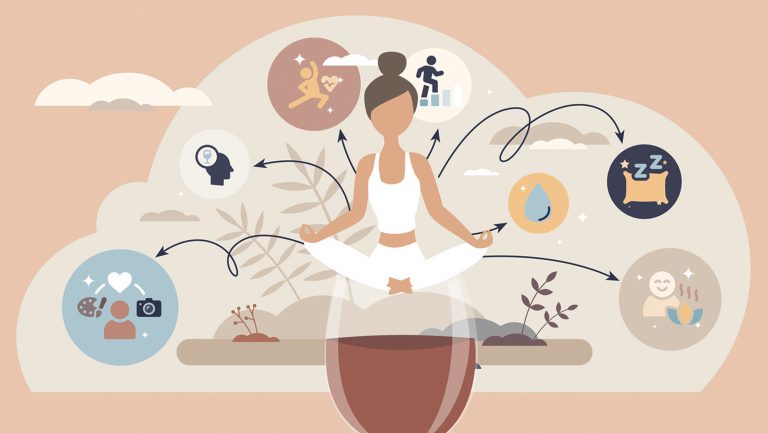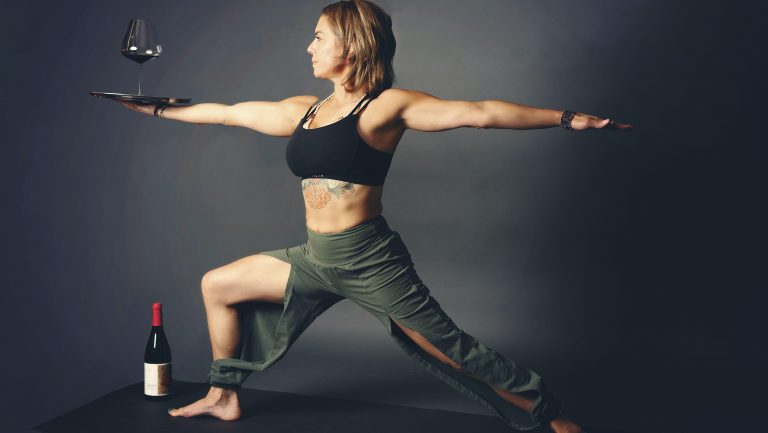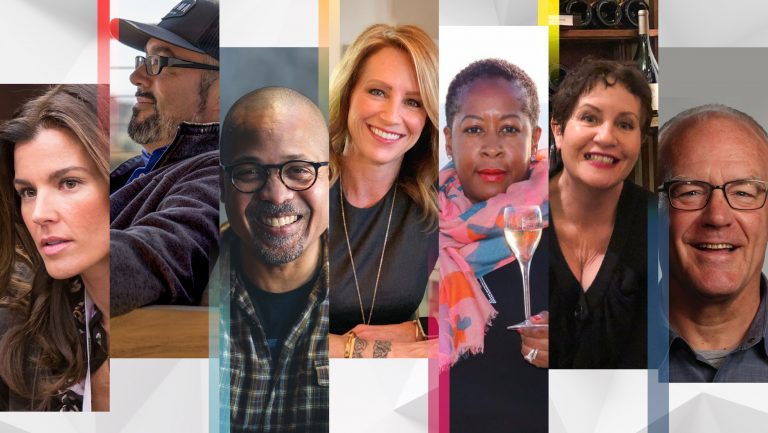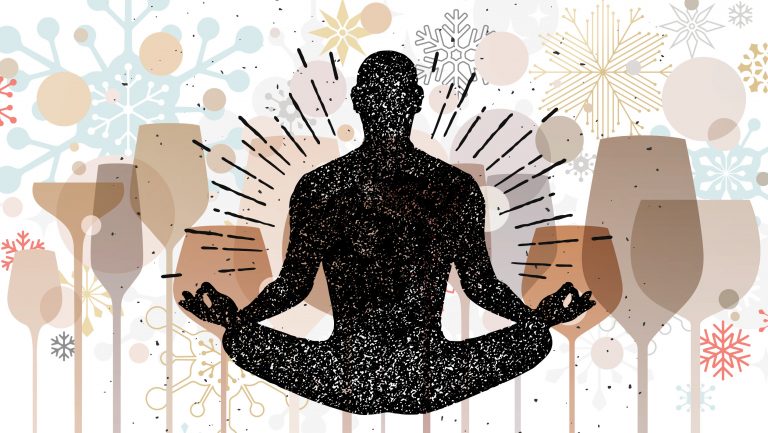The foundation of the bar and restaurant industries has always been taking care of customers and providing an exceptional guest experience. But in the midst of all the pouring, shaking, and serving, staff wellness has been known to take a back seat. Coupled with a “work hard, play hard” mentality that has permeated cocktail culture for decades, self-care for employees has rarely been prioritized. But that is changing. Whether they’re the result of an undercurrent of concern that has risen from sobering events, such as the death of cocktail luminary Sasha Petraske; honest accounts of personal experiences, like those in Kat Kinsman’s book “Hi, Anxiety”; or a general increase in health and wellness awareness nationwide, there are new dialogues around health concerns in the industry that are becoming a gateway for company-led solutions and preventive care behind the bar.
Beverage and service education traditionally makes up the majority of staff trainings, but some bars are breaking the mold and incorporating health- and wellness-focused offerings. Managers, who all came up through the ranks themselves, are coupling their experiences behind the bar with knowledge gained in their current positions, and creating curricula that address multiple aspects of their employees’ development, both personal and professional.
Dave Purcell, general manager of Melrose Umbrella Company in Los Angeles, realized he struck a chord when he changed the bar’s training structure to incorporate weekly and monthly wellness seminars, such as shake variation techniques to reduce injury, into the curriculum. “The bar movement and yoga [classes] were very popular because they tapped into activities that people were already doing [outside of work],” says Purcell. “The fact that we could bridge personal and professional activities gave it a strong turnout.” Purcell adds that the bar also offers fitness activities like circuit training and running stairs. “As a bar manager, I have a very personal concern for my staff,” he says. “Their physical well-being is outside of my auspices, so I can’t really enforce wellness. When there are those that take to it, it has so much more meaning to me than I expected.”

Don’t miss the latest drinks industry news and insights. Sign up for our award-winning newsletters and get insider intel, resources, and trends delivered to your inbox every week.
McGuire Moorman Hospitality (MMH) group in Austin, Texas, supports physical well-being by partnering with a local gym to offer staff a discount rate. In addition, MMH offers free classes three times a week for employees and their friends, regardless of whether or not they have a gym membership. Fitness is a core value at MMH; the free workouts stem from the company’s early days, when owner Larry McGuire would invite staff to join his sessions with a personal trainer.
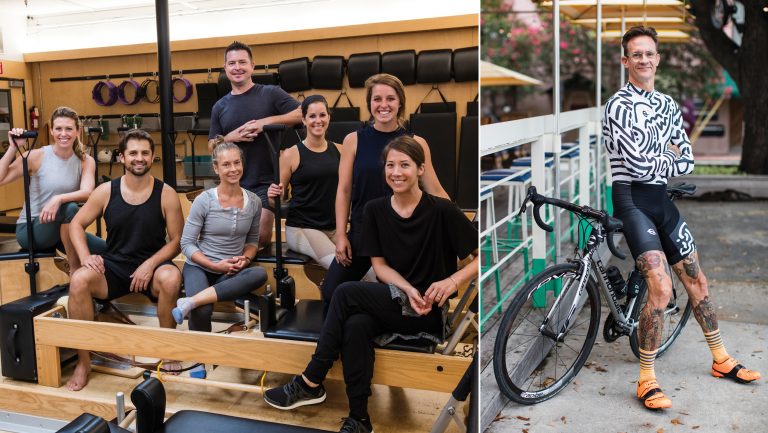
Small businesses often struggle with being able to afford health plans for employees, but companies like MMH work to support health and well-being through alternate means. Steven Allen Ridge, director of operations at MMH, says, “Being a small company, for what we would have to pay to get employees benefits, and the actual package they would get, it’s not worth it for us.” Although MMH actively researches health plans and hopes to one day offer one, Ridge explains: “We see the money better spent in a program of taking care of their health in general versus paying for a benefits program that offers nothing. We want our employees to have benefits, but we want them to have good benefits.”
June Rodil, MS, beverage director at MMH, participates in the company’s fitness offerings as often as she can; she loves the variety of classes and the team camaraderie that stems from working out together. More importantly, she likes how it creates balance in the often chaotic industry and how it “subtly hints that you should be able to do something in the morning.” She feels that for a lot of young people first entering the industry, it’s all too easy for them to sleep in and then wake up and go straight to the restaurant. Says Rodil, “I think it [demonstrates] that there are things to do before you get to work.”

Do Everything Better
What’s holding you back? Recharge, refresh, and get ready to make 2019 your strongest year yet
The concept of work-life balance also drives the employee training program at Dead Rabbit and BlackTail in New York City. About a year ago, Greg Buda, director of education for the bars, shifted the focus of staff meetings from purely food and drink education to classes on wellness and what he calls “personal development.” Like Melrose Umbrella Company, Dead Rabbit and BlackTail lead demonstrations on proper movement behind the bar and other physical trainings; however, their programming also includes seminars that focus on other wellness initiatives, such as financial health and professional development. They recently offered a seminar on managing personal finances that proved to be incredibly popular, and another one on career development beyond bartending, which offered advice on bar ownership, working for a brand or distillery, and consulting—all popular next steps for those behind the bar. Buda also incorporates suggestions from staff into the seminar schedule, such as an upcoming CPR certification course, which was requested by an employee.
Most of the seminars incur a minimal cost, such as a speaker fee, but Buda notes that he is often able to get classes sponsored by spirits brands or interested parties. The biggest challenge, he laughs, “is a boring one—it’s figuring out the right day on the calendar.”
Although Dead Rabbit won the distinct honor of being named “World’s Best Bar” in 2015 and 2016 by the World’s 50 Best Bars, its unique training program appeals to eager spirits professionals just as much as the trophies. “When we started pulling the emphasis back a little bit on learning about different categories of spirits and doing stuff that would be better for whole-scale development of our staff, [it gave] them an added benefit of working for us that was different from other bars,” says Buda. “The wellness was definitely a part of it, and it’s in our best interest as well to keep our staff healthy and happy.” For the upcoming year, he aims to dedicate seven out of the 12 trainings to personal and professional development, including training sessions on how to build a personal brand and sessions with the New York Police Department on safety and how to defuse conflict.
Whether through personal motivation or acting in response to attitude shifts in the industry over the past couple of years, company leaders are recognizing the importance of practicing wellness alongside spirits education. Physical well-being is paramount, especially as the hospitality industry often struggles to find affordable health care plans geared toward small businesses. Personal development also figures prominently into many trainings. The concept of work-life balance—once a buzzy phrase in corporate offices—now resonates for many who started their careers behind the bar, and nowadays, managers want to offer balanced lifestyles to their teams. Ultimately, as Buda points out, it’s in everybody’s “best interest to keep staff healthy and happy.”

Dispatch
Sign up for our award-winning newsletter
Don’t miss the latest drinks industry news and insights—delivered to your inbox every week.
Shana Clarke is a wine, sake, and travel writer, and the author of 150 Vineyards You Need To Visit Before You Die. Her work has appeared in Saveur, Fortune, NPR, Wine Enthusiast, and Hemispheres. She was shortlisted for the Louis Roederer 2020 International Wine Writers’ Awards and ranked one of the “Top 20 U.S. Wine Writers That Wineries Can Work With” by Beverage Trade Network in 2021. She holds a Level 3 Advanced Certificate from Wine & Spirit Education Trust and is a Certified Sake Sommelier. She will always say yes to a glass of Champagne. Learn more at www.shanaspeakswine.com and follow her @shanaspeakswine.


